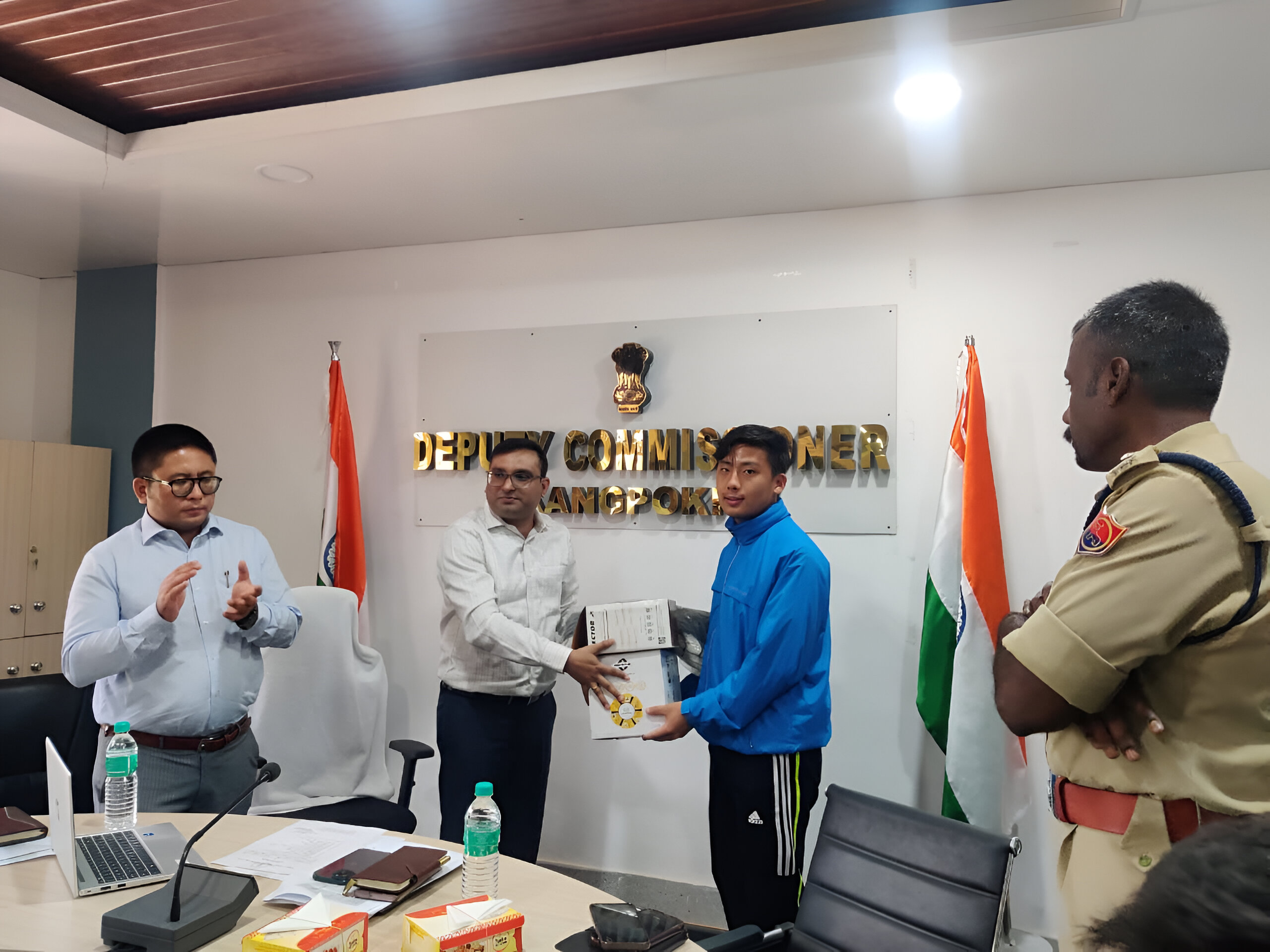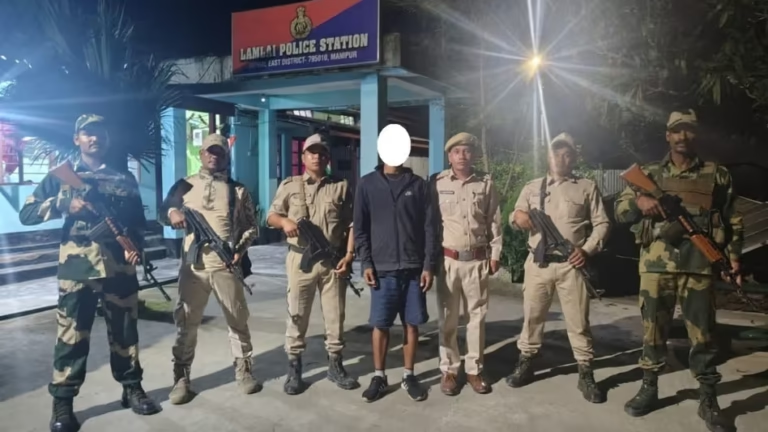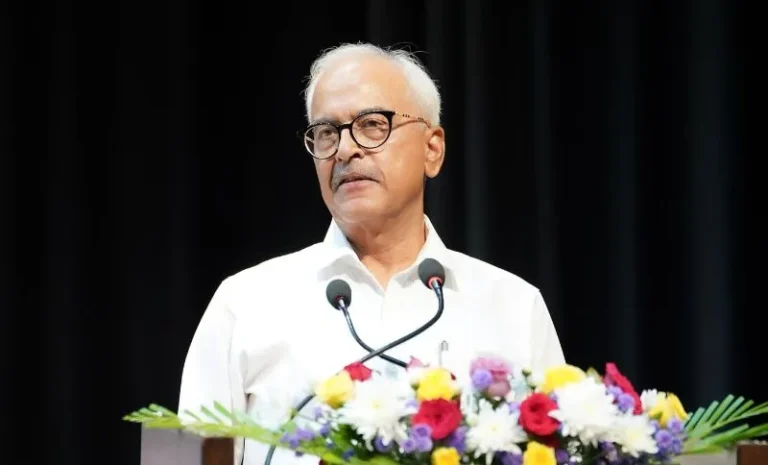Manipur’s Kangpokpi Fights Back – The Bold Drive Against Drugs, Child Marriages & Human Trafficking
The Kangpokpi district administration in Manipur has launched a comprehensive campaign targeting critical social issues such as drug abuse, child marriage, and human trafficking. This multi-pronged initiative involves awareness drives, collaboration with law enforcement and NGOs, and grassroots-level education. The campaign aims to build a safer, healthier society by addressing these pressing challenges simultaneously.
📰 Quick Summary
In a strong and proactive move, the district administration of Kangpokpi in Manipur has rolled out a multifaceted campaign aimed at combating drug abuse, child marriages, and human trafficking. This ambitious effort involves a combination of law enforcement support, public education, and community involvement to raise awareness and stamp out these deep-rooted social issues. You can check out the original report
🌍 Long-Form Article: A Deep Dive Into Kangpokpi’s Multi-Pronged Social Justice Campaign
🔎 Introduction: Why This Campaign Matters
Let’s be real — we often hear about government “drives” and “initiatives,” but how many of them actually dig deep into the roots of societal problems? The recent campaign launched in Kangpokpi is different. It doesn’t just scratch the surface — it dives straight into three interconnected crises: drug addiction, child marriage, and human trafficking. These issues may seem separate, but in places like Manipur, they often feed into one another, creating a vicious cycle that’s hard to break.
This is Kangpokpi’s shot at breaking that cycle.
🚨 The Triple Threat: Understanding the Problems
1. Drug Abuse – A Silent Epidemic
You’ve probably seen the headlines: northeastern India, especially Manipur, has been grappling with rising drug addiction for years. It’s not just about addiction — it’s about ruined futures, broken families, and a youth population losing its potential to opioids, meth, and synthetic drugs.
The Kangpokpi initiative aims to:
- Disrupt local drug networks
- Educate young people in schools and colleges
- Create peer-support and rehabilitation frameworks
Think of this as a detox plan — but for an entire community.
2. Child Marriage – Robbing Childhood
This one’s heartbreaking. Child marriage still happens in many rural parts of India, and while it might be wrapped in cultural or economic reasoning, it strips away a child’s right to grow up, get educated, and choose their own path. Kangpokpi’s administration is now:
- Holding awareness camps in vulnerable villages
- Partnering with local leaders to discourage child marriages
- Creating hotlines and safe spaces for at-risk children
And guess what? When young girls get to stay in school and complete their education, they not only avoid early marriage — they uplift their whole communities.
3. Human Trafficking – The Hidden Crime
Trafficking isn’t always what we see in movies — it’s often local, hidden in plain sight, and shockingly normalized. From forced labor to exploitation of minors, the reality is chilling. This campaign is tackling it head-on by:
- Strengthening border checkpoints and local surveillance
- Training law enforcement in identifying red flags
- Conducting rescue and rehabilitation missions with the help of NGOs
This isn’t just crime prevention. This is about rescuing real people from nightmares.
👮♀️ The Multi-Pronged Strategy: What’s Actually Happening
Here’s where it gets impressive — the Kangpokpi administration isn’t going at this solo. They’ve created a collaborative force with:
- Police and paramilitary units to tighten security and conduct raids
- NGOs focused on women, children, and addiction rehabilitation
- Community leaders who have the trust and influence to reach local people
- Healthcare workers bringing medical support into rural corners
- Teachers and students who act as messengers of change
They’re not just reacting to crises — they’re proactively building a protective ecosystem.
📚 Awareness Is Key: Reaching the Grassroots
What’s the point of a campaign if people don’t even know it’s happening? Awareness drives are being held in schools, community halls, local churches, and marketplaces. And here’s the twist — the messaging is customized based on the audience.
For young people? Interactive sessions with role plays and skits. For parents? Workshops that emphasize the long-term damage of child marriage and addiction. For local leaders? Strategy meetings to align traditional customs with legal frameworks.
You can’t force change on people — but you can invite them to be part of it.
🎯 Challenges: It’s Not All Smooth Sailing
Let’s not sugarcoat it — there are hurdles. Big ones.
- Stigma: Talking about drug abuse or trafficking still feels taboo in many communities.
- Corruption: Some drug operations are protected by deep-rooted corruption.
- Poverty: For many, child marriage or trafficking seems like a way out of financial despair.
- Access: Reaching remote areas without proper roads or communication is a logistical nightmare.
But the Kangpokpi administration seems aware of these hurdles. Instead of backing down, they’re innovating — with mobile clinics, traveling legal teams, and 24/7 helplines.
💪 Community-Led Change: Why It Works
Top-down campaigns often fail because they ignore the ground realities. Kangpokpi’s approach is bottom-up. They’re giving local people ownership over the movement.
Here’s what that looks like:
- Empowering youth clubs to run anti-drug rallies
- Training village women as “Child Marriage Watchdogs”
- Forming WhatsApp groups for rapid-response tip-offs on trafficking
Change sticks when it grows from within the community, not when it’s forced from above.
🛡️ What This Means for Manipur and Beyond
This campaign could be a blueprint for other districts in Manipur — even for other states in India. If it succeeds, it proves that targeted, community-driven, multi-pronged action can tackle even the toughest social issues.
It also sends a strong message: We’re not just surviving — we’re fighting back.
❓ 5 Unique FAQs
Q1: Why is drug abuse so prevalent in Manipur?
Manipur’s proximity to the infamous “Golden Triangle” and porous borders make it a hotspot for drug trafficking. Add socio-political instability and unemployment, and you have a recipe for widespread addiction.
Q2: How can people report cases of child marriage or trafficking in Kangpokpi?
The district has set up anonymous helplines and community reporting channels through local leaders and NGOs to make it safe and easy to report such cases.
Q3: Are there any rehabilitation programs for drug addicts?
Yes! The campaign includes tie-ups with de-addiction centers and peer-counseling networks to help addicts rebuild their lives with dignity and support.
Q4: How are schools involved in the campaign?
Teachers are being trained to spot early signs of abuse or vulnerability among students. Schools are also becoming hubs for awareness and youth empowerment programs.
Q5: What role do local communities play in this drive?
Communities are key. Local leaders, youth groups, and women’s associations are being empowered to monitor, report, and prevent harmful practices from the ground up.



